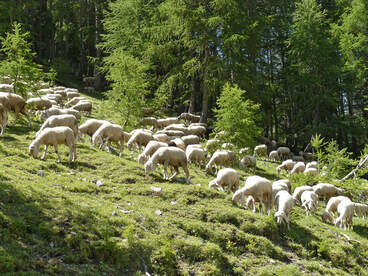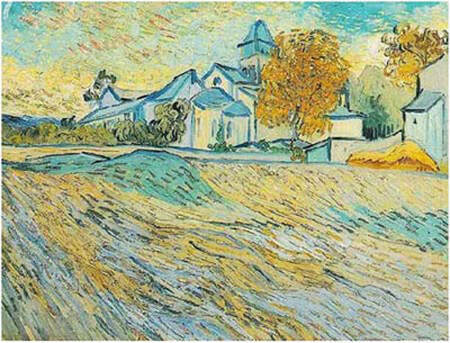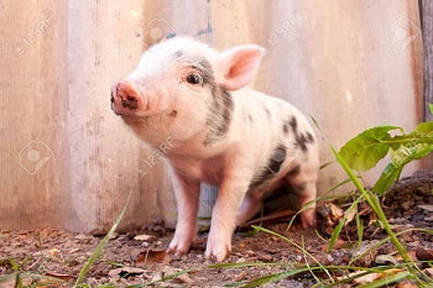David Tickner's Blog, page 23
April 1, 2022
April Fool
 In 16th century France, New Year’s Day was 25 March. People feasted for a week until the end of the celebrations on 1 April. However, in 1564 the calendar was officially changed from the Julian version to the Gregorian version so that New Year’s Day now fell on 1 January—a slightly more drastic change than moving the clocks back or ahead an hour for Daylight Saving.
In 16th century France, New Year’s Day was 25 March. People feasted for a week until the end of the celebrations on 1 April. However, in 1564 the calendar was officially changed from the Julian version to the Gregorian version so that New Year’s Day now fell on 1 January—a slightly more drastic change than moving the clocks back or ahead an hour for Daylight Saving.People who would not accept this change continued to celebrate on 1 April and for this reason were called ‘April Fish’ and were given mock presents. This custom spread to other countries where the expression became April Fool.
The term April Fool came to English in the 1680s as April-gowk from Old Norse gaukr (cuckoo).
April Fool’s Day, originally All Fool’s Day, appears in 1712. The April Fool’s Day tradition of sending people on false errands seems to have come to England from France in the 17th century. In some parts of England, the 1st of May was the day for hoaxing. The fool was called a ‘May gosling’.
Today, April Fools is a day for harmless and good-natured practical jokes and hoaxes. Traditionally, you can only play April Fools pranks until midday—after that the joke is on you.
“In one famous prank in 1957, the BBC broadcast a film in their current affairs series purporting to show Swiss farmers picking freshly-grown spaghetti, in what they called the Swiss spaghetti harvest. The BBC was soon flooded with requests to purchase a spaghetti plant, forcing them to declare the film a hoax on the news the next day” (Wikipedia).
https://www.youtube.com/watch?v=tVo_wkxH9dU&ab_channel=MySwitzerland
The word Aprilis came to English in the 12th century from Latin Aprilis which was the second month of the old Roman calendar. Aprilis likely comes from Latin aperilis (the next, the following) or from Apru, an Etruscan form of Greek Aphrodite. Aprilis replaced the Old English word Eastermonao (a fertility goddess). The word Apprile, later April, first appears in the 14th century.
The word fool, from the early 13th century, meaning a silly, stupid, or ignorant person, comes from Old French fol (madman, idiot, rogue, jester). Old French fol was also a blacksmith’s bellows (suggesting perhaps that a fool was a ‘blow hard’!).
The verb ‘to fool’ (to be foolish, to act the fool) is from the mid-14th century. The phrase ‘to make a fool of’ is from the 1590s. To fool, meaning to cheat, is from the 1640s. In the late 19th century, ‘to fool around’ was to pass the time idly. By the 1970s, ‘to fool around’ also meant to play around sexually.
The word fool also has some less common meanings. In the 14th century, the word fool meant a prostitute. A fool, a type of English custard dessert sometimes also called a trifle, is from the 1590s.
Reference: Online Etymological Dictionary, https://www.etymonline.com/
Published on April 01, 2022 07:44
March 28, 2022
Print-out
 Do you say, “Could you please print-out that document for me?” or do you say, “Could you please print that document for me?” Why do we say ‘print-out’ rather than just ‘print’? This has been a puzzle to me for a while.
Do you say, “Could you please print-out that document for me?” or do you say, “Could you please print that document for me?” Why do we say ‘print-out’ rather than just ‘print’? This has been a puzzle to me for a while.I was surprised to learn that the noun ‘print-out’, meaning an image reproduced by other means than chemical photographic development, first appears in 1899. The noun print-out comes from the verb phrase ‘to print out’, first seen in 1884. In brief, a print-out is what you print out.
Print-out, meaning a sheet of printed matter produced by a computer or other automatic apparatus, is from 1953.
The word print comes from the Proto-Indo-European (PIE) root per-(4) meaning ‘to strike’.
Reference: Online Etymological Dictionary, https://www.etymonline.com/
Published on March 28, 2022 19:29
March 27, 2022
Populist, Populism
 Perhaps not surprisingly, the word populist has its origins in Latin populus (a people, nation; body of citizens; a multitude, crowd, throng), a word of unknown origin. Latin populus is the source of Spanish pueblo, Italian popolo, and later, in English, populus (people) replaced the earlier native word folk.
Perhaps not surprisingly, the word populist has its origins in Latin populus (a people, nation; body of citizens; a multitude, crowd, throng), a word of unknown origin. Latin populus is the source of Spanish pueblo, Italian popolo, and later, in English, populus (people) replaced the earlier native word folk.The word Populist (a person who is an adherent of populism; a member of the Populist Party) first appears in American English in 1892 from Latin populus. The Populist Party was organized in February 1892 to promote issues important to farmers and workers; e.g., currency reforms, state control of railways, and restrictions on land ownership.
The word populism, from 1893, refers to the political doctrines or principles of the Populist Party, a left-wing agrarian faction in US politics. Populism continued after the decline of the Populist Party.
By the 1920s, the word populist had come to mean someone who claimed in a general way to represent the views of the masses, an increasingly quaint view that no longer seems realistic or possible in an increasingly pluralistic society.
By the 1950s, a populist was someone who held anti-establishment views from either a left-wing or a right-wing perspective.
Merriam-Webster describes a populist as “a member of a political party claiming to represent the common people” and “a believer in the rights, wisdom, or virtues of the common people.”
By the 1960s, populism was a term used for political movements that sought to rally so-called ordinary or common people who see their concerns as being disregarded by established parties and elites. The term populism is also used pejoratively in reference to irrational or simplistic demagoguery.
Today, a populist is defined as someone who appeals to or gives voice to a certain segment of the population or to a special interest group which is in alignment with her or his views.
Reference: Online Etymological Dictionary, https://www.etymonline.com/
Published on March 27, 2022 10:07
March 23, 2022
Gregarious
 Do you know anyone whom you would consider to be gregarious?
Do you know anyone whom you would consider to be gregarious?In terms of word origins, a gregarious person likes to be part of the herd or flock. The word gregarious meaning disposed to live in flocks came to English in the 1660s from Latin gregarius (pertaining to a flock, of the herd, of the common sort, common) and from Latin grex (flock, herd). The origins of the word gregarious are in the Proto-Indo-European (PIE) root ger (to gather).
The word gregarious as related to persons is from 1789.
Also: the word gregariously contains every vowel. In case anyone asks.
Reference: Online Etymological Dictionary, https://www.etymonline.com/
Published on March 23, 2022 07:47
March 20, 2022
Asylum
 What comes to mind when you hear the word asylum?
What comes to mind when you hear the word asylum?The word has its origins in Greek asylon (refuge, an inviolable place, safe from violence; especially for persons seeking protection) and Latin asylum (sanctuary).
The word asylum came to English in the early 15th century meaning a place of refuge. Originally, an asylum was a place, often a church, where people fleeing from justice or injustice could remain and from which they could not be taken without sacrilege.
Asylum meaning a safe or secure place is from the 1640s; meaning an inviolable shelter, protection from pursuit or arrest, is from 1712; meaning a benevolent institution to shelter some class of persons suffering social, mental, or bodily defects, is from 1773 (notably female orphans).
Today, the Merriam-Webster Dictionary tells us that asylum means a place of “protection or security; in particular, the protection from arrest and extradition given to political refugees...”
Merriam-Webster also states that the notion of an asylum as “an institution providing care and protection to needy individuals (such as the infirm or destitute), especially the mentally ill, is a somewhat old-fashioned” notion.
Sometimes when driving through parts of the city in which I live, I wonder if this ‘old-fashioned’ notion needs to be revisited in some non-judgmental manner as part of contemporary social justice initiatives.
Image: Asylum and Chapel at Saint Remy-de-Provence, France: Vincent van Gogh, 1889
Reference: Online Etymological Dictionary, https://www.etymonline.com/
Published on March 20, 2022 11:14
March 16, 2022
Leprechaun
 You may be interested or surprised to know that recent research suggests that the word leprechaun has its origins in the ancient Roman rituals of Lupercalia in which young men ran naked through the streets of Rome.
You may be interested or surprised to know that recent research suggests that the word leprechaun has its origins in the ancient Roman rituals of Lupercalia in which young men ran naked through the streets of Rome.First of all, the word leprechaun comes to English around 1600 from Irish lupracan and Old Irish luchorpan (a very small body), from Old Irish lu (little, small) from the Proto-Indo-European root legwh (not heavy, having little weight). Old Irish lu + Latin corp (body) = little body.
So, what’s with leprechauns and Lupercalia? The Luperci were originally bands of aristocratic youth who ran naked through the streets of Roman during the festival of Lupercalia on the 15th of February each year. The Online Etymological Dictionary reports that…
“In the 5th century CE, St Augustine of Hippo compared the Luperci with the Greek werewolves who were believed to change from men into wolves by swimming through a lake in Arcadia. Two centuries later Irish scholars misunderstood Augustine. They thought he meant that the Luperci were an ancient non-human race. Because they could swim they were supposed to have survived Noah's Flood and taken refuge in Ireland. So, in medieval Irish legends the leprechauns or 'little Luperci' still lived under water. The wolf connection was soon forgotten and eventually the 'little Lupercus' became the familiar land-dwelling leprechaun of modern Irish folklore and tourism.” https://www.etymonline.com/search?q=LEPRECHAUN
So, feel free to share this story with your friends over a pint or two of Guinness!
HAPPY ST. PATRICK’S DAY!!
Reference: Online Etymological Dictionary, https://www.etymonline.com/
Published on March 16, 2022 22:22
March 6, 2022
Porcelain
 Do you have any porcelain objects in your home? Have you ever wondered if the word porcelain has anything to do with pork? It does.
Do you have any porcelain objects in your home? Have you ever wondered if the word porcelain has anything to do with pork? It does.The word porcelain has its origins in the Proto-Indo-European (PIE) root porko (young pig), Latin porcus (pig), porculus (piglet), and porcellus (young pig). (On a side note, the English word pork has hardly changed since its origins over thousands of years ago—pork has always been pork.)
What’s the connection between pigs and porcelain? Stick with me as I connect the dots.
The word porcelain, meaning ceramic ware having a translucent body and a translucent glaze, first appeared in English in the 1530s from French porcelaine and 13th century Italian porcellana—all meaning porcelain.
However, Italian porcellana also meant a cowrie shell. Porcelain chinaware was named as such because of the resemblance of its lustrous transparency to the shiny surface of the cowrie shell.
Porcellana comes from Italian porcella (a young sow). “According to an old theory, the connection between the cowrie shell and the pig is the perceived resemblance of the opening of the shell to the exposed outer genitalia of a sow.” In ancient times, cowrie shells were used as charms or talismans to ensure fertility. “The association of cowrie shells with female sex is almost worldwide” (Online Etymological Dictionary).
Finally, there is no difference between the words porcelain and china. In brief, porcelain is the exotic and literary term, china is the everyday term.
While on the subject of pigs, you might also be interested to know that the word hybrid has its origins in Latin hybrida (mongrel; specifically, the offspring of a tame sow and a wild boar). Your local automobile dealer may also be interested in this bit of information!
Reference: Online Etymological Dictionary, https://www.etymonline.com/
Published on March 06, 2022 20:27
February 27, 2022
Wow
 How often do you exclaim, “Wow!”
How often do you exclaim, “Wow!”Wow is originally a Scottish word, meaning a natural expression of amazement. When you say, “Wow”, you have to stretch your mouth wide open, as in ‘jaw dropping’.
Who knows how long people have been saying, “Wow!” Probably for a long time before the word wow first appears in writing in the 1510s.
The verb ‘to wow’, meaning to overwhelm with delight or amazement, is from American slang of the 1920s.
Reference: Online Etymological Dictionary, https://www.etymonline.com/
Published on February 27, 2022 07:56
February 25, 2022
Opera
 What’s the connection between an opera and an operation?
What’s the connection between an opera and an operation?The word opera has its origins in the Proto-Indo-European (PIE) root op (to work, produce in abundance), Latin opus (a work), and Latin operari (to work)
The word opera, meaning a drama sung and a form of extended dramatic composition in which music is essential and predominant, appeared in English in the 1640s from Italia opera (a work, a labour, a composition), and Latin opera (work, effort).
The first opera is said to have been a form of musical composition from shortly before 1600 which was created “by some enthusiastic Florentine amateurs who sought to bring back the Greek plays to the modern stage” (Online Etymological Dictionary).
The term opera house, a theatre devoted chiefly to opera performances, is from 1720.
The word operation, meaning action, performance, work, and the performance of some science or art, came to English in the late 14th century.
And, if you are wondering, PIE op is not the source of words related to optics. Optics and many other related words have their source in PIE okw (to see).
And, if you are still with me… opera is one of many good words to begin the daily wordle puzzle!
Reference: Online Etymological Dictionary, https://www.etymonline.com/
Published on February 25, 2022 07:55
February 21, 2022
Twosday
 Two
TwoThe word two has its origins in PIE duwo, dwo (two) and Proto-Germanic twa, the source of Old Saxon twene, twa, Old Norse tveir, Dutch twee, Old High German zwo, German zwei.
PIE dwo and Proto-Germanic twa are the source of Old English twa which later became the word two. The word two has hardly changed in thousands of years. Old English twa is related to the word twegen (two) which, in 1799, became the word twain, a nautical term meaning two fathoms depth.
PIE dwo is the source of many words, including between, binary, biscuit, combine, dichotomy, diode, diploma, diplomat, double, doubt, dual, dubious, duplicate, twenty, twice, twig, twilight, twin, and twine.
Day
The word day has its origins in the PIE root agh (a day) and Proto-Germanic dages (day), the source of Old Saxon dag, Old High German tag, Old Norse dagr, and Old English daeg (the period during which the sun is above the horizon). Old English daeg also meant a lifetime, a definite time of existence.
In the later Anglo-Saxon period of English history, the word day had come to mean a 24-hour day which began at sunset.
The terms ‘day-by-day’ and ‘all day’ are from the late 14th century. The term ‘one of these days’ is from the 15th century.
The term ‘all in day’s work’ (i.e., the unusual taken as routine) is from 1820; a ‘day off’ (i.e., a day way from work) is from 1883; “call it a day” is from 1919; “it’s been one of those days” (i.e., a day of misfortune) is from 1936; and “that will be the day” is from 1941.
I can hardly wait until 22 2 2222! I hope it’s a Tuesday.
Reference: Online Etymological Dictionary, https://www.etymonline.com/
Published on February 21, 2022 21:53



